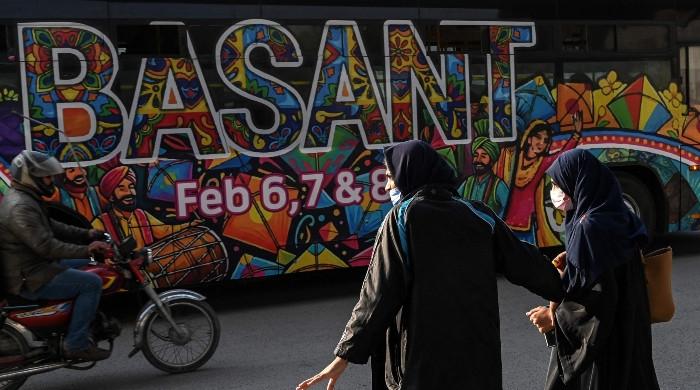Judicial accountability and witch hunts
“Pakistan needs a judiciary which is accountable, rights-respecting and impartial. Witch hunts will not get us there.”
June 13, 2019
When the reference against former Chief Justice, Iftikhar Chaudhary was filed, many people familiar with Justice Chaudhary and his manner of conducting court were deeply uncomfortable. The charges against him were not implausible. On the flip side was the illegal way in which those charges were made. Some framed it as a choice between judicial independence and judicial accountability. The binary between independence and accountability is in most cases a false one: an unaccountable judiciary is most often also non-independent, and a compromised judiciary often operates with impunity. It was an attack on judicial independence and accountability.
The consequence of the lawyers' movement was that a significant part of the judiciary was politicized for no fault of their own because they became part of and were reinstated by a political movement. It was a severe blow to judicial accountability because the post restoration Supreme Court went into a siege mentality and attempted to maintain monolith solidarity which meant no diversity of opinions, no dissenting notes, and no challenge to the demagoguery of Justice Chaudhary. The post lawyers' movement Supreme Court was also a court with a discovery of the charms of news tickers and primetime television and a court with a perceived constituency amongst the urban middle classes.
Many of us asked for some reflection and self-awareness during the movement, however, none of this obscures the fact that siding with the judiciary (even a deeply flawed one presided by Justice Chaudhary) against an attack by a totalitarian regime was the only choice.
The accusation against Justice Chaudhary were never really examined on merits because the fight became about something else. Disregard of due process not only meant the Justice Chaudhary never faced legitimate accountability it also contributed to the "unfettered activism" displayed by the court.
In 2016, a petition was filed in the Supreme Court by Kamran Sheikh, a member of the Pakistan Bar Council, with the objective of making the usually opaque and secret proceedings of the Supreme Judicial Council (SJC) more transparent. The petition asked for the total number of complaints and references filed before the SJC and the status of these proceedings. The response of the Supreme Court to this very reasonable request was to dismiss the petition on the grounds that “it is one of the important aspects of proceedings before the SJC that at every stage of its proceedings...complete confidentiality and secrecy is to be maintained about the actions taken by the council.”
The archaic and high standards of "complete confidentiality" and "secrecy" seemed to have been lowered for the reference filed against Justice Qazi Faez Isa, and the contents of the reference and the accusations made it to WhatsApp groups and television channels even before a copy of the reference had been provided to Justice Isa. The two extremes on display in the 2016 petition and the present episode involving Justice Isa cover the dysfunction of meaningful judicial accountability mechanisms in Pakistan. It is beyond question that the Supreme Judicial Council needs to be a transparent, credible and functional body.
The most significant distinction between the attack on Justice Isa and Justice Chaudhry is that in the present round it is not only the manner in which the accusations are made, which is questionable, but the accusations themselves seem flimsy.
The accusations pertain to section 116 of the Income Tax Ordinance which requires an individual to disclose assets of spouse or children only if the assets were obtained by money provided by the individual or held in the name of the individual etc. There is no evidence to suggest that either this was the case or the president (acting on the advice of the prime minister) satisfied himself that this was the case. I do not speak for Justice Isa, he does it himself and does so with great eloquence. Hence, I will restrain from commenting on the merits of the charges in detail. Justice Isa's integrity remains unimpeachable as a lawyer, chief justice of Balochistan high court and a judge of the supreme court.
This episode is not about an interpretation of a section of the income tax ordinance, it is about the crossing of red lines and of committing the unpardonable sin of having a spine and an independent mind. The usual suspects forwarding thesis long WhatsApp messages and those, unconvincingly, frothing at the mouth on television make this a transparent attempt. Justice Isa's gravest mistake is to not speak in innuendos and indulge in throat clearing, feet-shuffling obscure language, which renders judgments and words on the most important issues meaningless and indecipherable.
Selective accountability can be worse than no accountability. It dismantles the system and creates incentives and red-lines which are inescapable but remain unspoken. Pakistan needs a judiciary which is accountable, rights-respecting and impartial. However, witch hunts and intrigues are exactly the measures that will not get us there.
Why should the “man at a chowk in DG Khan” (to use Justice Khosa's phrase from the Panama judgment) care about esoteric principles such as “judicial independence and accountability” when the challenges in the country remain elemental? He should care because an assault such as this poisons the well and effects everything. The reference against Justice Isa is a response to judicial decisions that he has given on the bench and the intention is two-fold: firstly, to get rid of Justice Isa (and in doing so also avoid the hassle of having him as the chief justice in the election year of 2023) and equally importantly to send a message to every judge in the country that deviation from the "script" shall not go unpunished. In short, decisions will be dictated by considerations that maybe outside of the facts, the arguments presented and the law. This reduces the role of lawyers to nothing and of the judges to playing dumb charades, and it effects the constitutional petitions in the supreme court as well as cases involving cattle theft in Layyah.
Surrendering to clichés, what is at stake here is the difference between rule of law and rule of men. The rule of law in Pakistan is deeply, deeply flawed however if the attack on Justice Isa without due process succeeds it will evaporate into nothingness. One hopes that the Supreme Court and SJC fully realize that much more than Justice Isa's seat on the bench is at stake here, and ensure that highest standards of due process and transparency are upheld.
Ijaz is a lawyer and the country representative for the Human Rights Watch.
Note: The views expressed are those of the author, and do not necessarily reflect the official policy or position of Geo News or the Jang Group.











